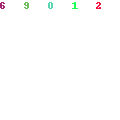Moderation of headline CPI to +6.2% y/y in August from +6.5% in the prior month signaled that inflation in China probably peaked in July. Yet, price levels remained elevated and it would be premature to expect China will abandon tightening or even shift to easing monetary policy. Growth of industrial production and fixed asset investment and retail sales decelerated further in August as a result of government's tightening measures. Yet, the rate of expansion remained resilient despite recent global economic turmoil. We expect to see further slowdown in economic activities in coming months but do not envisage any signs of hard landing.
Headline CPI rose to +6.2% y/y in August, easing from +6.5% in July, as helped by slowdown in food and housing prices. PPI increased +7.3% y/y in August, also down from +7.5% in July. We expect inflation has probably peaked in July and further drops are likely in coming months as oil prices have been pressured recently due to rising uncertainty in global economic outlook while pork prices in China has stabilized. Despite the steady decline, elevated inflation should remain a concern for the government. Note that even if inflation falls more significantly to in coming months, the average inflation for 2011 would remain above government's annual target of 4%. Therefore, policymakers would remain vigilant over price pressures and should maintain tightening monetary stance.

Asian stock markets last week were once boosted by a rumor that China may ease monetary policy over the next several months. We believe such speculation is premature. Indeed, just a week ago, some reports 'leaked' the information that the Chinese government is broadening the scope of reserve ratio hikes by including banks' margin deposits in required reserves. Bloomberg estimated that the move will freeze up to RMB 900B from the banking system. While both rumors were not verified, we believe the PBOC will prefer maintaining a tightening bias in monetary policy and turn to a 'proactive fiscal policy' should the economic outlook deteriorate further.
Industrial production (IP) climbed +13.5% y/y in August, easing from 14.0% and +15.1% in July and June respectively. While the reading also missed market expectations, it suggested growth in China remained resilient despite a series of rate hikes and increases in RRR. Fixed asset investment (FAI) grew +25.0% in the first 8 months of 2011, down from +25.4% in the first 7 months of the year. The deceleration was mainly brought about by the slump in railway investment which plunged +15.5%. Property and manufacturing investments remained resilient, soaring +33.2% and +32.2%, respectively.
We are impressed by retail sales which rose +17.0% y/y in August. Although it represented a dip from +17.2% in July, it continued to gyrate stably within a range of 17-18% over the past 2 quarters.
The set of data suggests that growth in China has moderated after government's persistent efforts to drain liquidity from the market. Further slowdown may be inevitable in coming months as tightening measures continue to show its effects and global economic outlook deteriorates further. However, the set of data also indicates the government's capability of curbing inflation while not hammering growth. Barring a rapid downturn in global economic activities, a hard landing of Chinese economy remains unlikely.







No comments:
Post a Comment